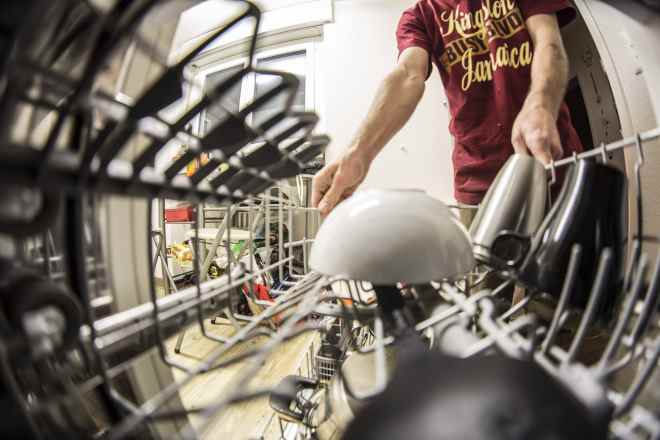Natural Focus — Simple Habits for a Clear Mind
Feeling mentally drained halfway through the day? You’re not alone. Millions of people experience the same crash — that moment when coffee stops working, and focus just fades. But what if there were simple, natural ways to support your brain and energy levels throughout the day?From better hydration and balanced nutrition to proven focus-enhancing habits, there are small changes that make a real difference.

In today’s hectic environment, finding mental clarity feels like searching for silence in a noisy room. Our attention spans are constantly tested by digital distractions, work pressures, and the general pace of modern life. Yet maintaining focus is essential for productivity, learning, and overall well-being. Rather than turning to quick fixes or stimulants, incorporating natural habits into your daily routine can create lasting improvements in your ability to concentrate and think clearly.
Morning Energy Routines for Mental Clarity
The first hours after waking set the tone for your entire day’s mental performance. A structured morning routine signals to your brain that it’s time to engage and focus. Start with hydration—drinking 16 ounces of water within 30 minutes of waking rehydrates your brain after hours without fluids. Morning light exposure is equally crucial, as it helps regulate your circadian rhythm and boosts alertness by suppressing melatonin production. Even 10-15 minutes of natural sunlight can make a significant difference.
Physical movement is another morning focus enhancer. A brief session of moderate exercise—whether it’s yoga, a brisk walk, or simple stretching—increases blood flow to the brain and releases endorphins that improve cognitive function. Many people find that morning meditation or mindfulness practices create mental space and prepare the mind for focused work. Even five minutes of controlled breathing or guided meditation can reduce stress hormones that interfere with concentration.
Natural Focus Boosters Throughout the Day
Several natural approaches can enhance your focus without resorting to caffeine overload or other stimulants. Aromatherapy using essential oils like rosemary, peppermint, and lemon has been shown to stimulate the brain and improve concentration. Keep a small diffuser at your workspace or use a personal inhaler for quick focus boosts. Regular breaks using the Pomodoro Technique—25 minutes of focused work followed by a 5-minute break—prevent mental fatigue and maintain productivity throughout the day.
Nature exposure serves as a powerful focus restorer. Research shows that even brief interactions with natural environments can replenish directed attention. If possible, take short walks outdoors or position your workspace near a window with a natural view. For those without easy access to nature, simply looking at images of natural scenes or keeping plants in your workspace can provide similar benefits, though to a lesser degree.
Brain Nutrition Essentials for Optimal Focus
What you eat directly impacts your brain’s ability to focus and process information. Foods rich in omega-3 fatty acids—like fatty fish, walnuts, and flaxseeds—support brain health and cognitive function by maintaining cell membrane integrity. Complex carbohydrates found in whole grains, legumes, and vegetables provide steady glucose release, preventing the energy crashes that derail concentration.
Antioxidant-rich foods combat oxidative stress that can impair brain function. Berries, dark chocolate, and colorful vegetables contain flavonoids and other compounds that protect neural tissue and support memory and focus. Adequate hydration is perhaps the simplest yet most overlooked nutritional factor affecting concentration—even mild dehydration can impair attention, memory, and cognitive performance. Aim for at least 8-10 cups of water daily, adjusting for activity level and climate.
Midday Fatigue Solutions to Maintain Focus
The post-lunch energy dip affects most people, but several strategies can help you navigate this challenging period without losing productivity. Strategic movement breaks can counteract the sedentary nature of desk work that contributes to afternoon sluggishness. Even two minutes of movement—like stretching, walking, or doing jumping jacks—can increase blood flow and oxygen to the brain, restoring alertness.
Mindful eating during lunch prevents the energy crashes that follow heavy meals. Choose balanced options with protein, healthy fats, and complex carbohydrates while avoiding excessive sugar and simple carbs that lead to energy fluctuations. For some people, a short power nap (10-20 minutes) can refresh the brain without causing sleep inertia. If napping isn’t possible, a brief meditation or simply closing your eyes for a few minutes can provide similar rejuvenation.
Evening Recovery Habits for Tomorrow’s Focus
What you do in the evening directly affects your ability to focus the next day. Digital sunset—reducing exposure to screens and blue light at least one hour before bedtime—helps maintain proper melatonin production and sleep quality. Blue light filters on devices and amber glasses can reduce this effect if screen use is unavoidable.
Creating a consistent wind-down routine signals to your brain that it’s time to transition from alertness to rest. Activities like gentle stretching, reading physical books, or listening to calming music help facilitate this shift. Temperature regulation in your sleeping environment also impacts sleep quality—slightly cooler temperatures (around 65-68°F/18-20°C) generally promote deeper sleep that restores cognitive function.
Reflection practices before bed, such as journaling or gratitude exercises, help process the day’s experiences and clear mental space for the next day. This mental offloading prevents rumination that can interfere with both sleep and next-day focus. By establishing these evening habits, you create the conditions for waking up with a refreshed, clear mind ready to engage with the day ahead.
This article is for informational purposes only and should not be considered medical advice. Please consult a qualified healthcare professional for personalized guidance and treatment.




